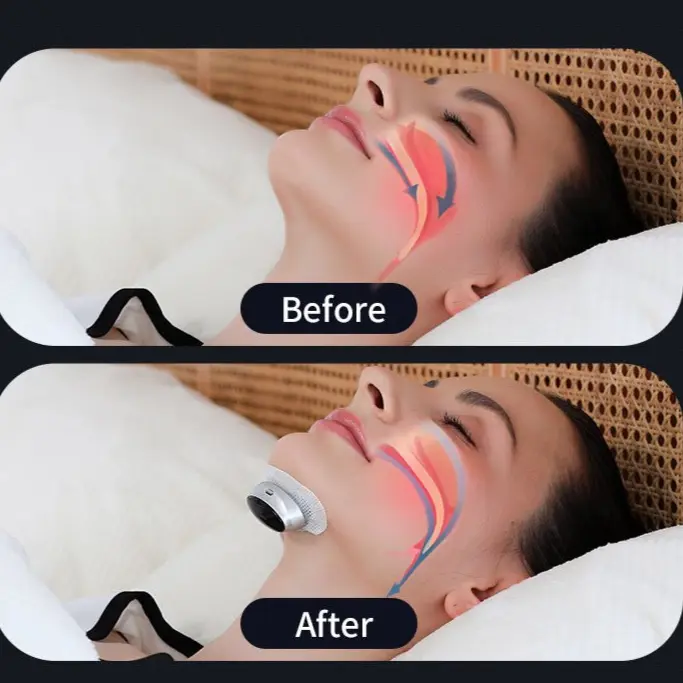Are you tossing and turning at night, unable to find rest because of incessant snoring? You’re not alone. Understanding the connection between snoring and insomnia can help you reclaim the peaceful nights you deserve. Let’s explore effective steps to tackle this issue.
Understand the Link Between Snoring and Insomnia
Learn how snoring disrupts sleep patterns and contributes to insomnia. Understanding this connection is the first step towards resolution.
Snoring often leads to fragmented sleep, leaving you waking up tired. This cycle of interrupted sleep can exacerbate insomnia, creating a frustrating loop. When your partner’s snoring interrupts your rest, it’s essential to recognize how it affects your overall well-being.
Research suggests that the vibrations from snoring can disturb not just the snorer but their sleeping partner as well. As you strive for restful nights, think about how snoring impacts those around you, reinforcing the importance of finding solutions.
Identify the Causes of Snoring
Explore common causes of snoring, including nasal congestion, obesity, and sleep position, to identify the root of the problem.
It’s crucial to recognize that various factors can contribute to snoring. For instance, nasal congestion from allergies or colds can block airflow, causing those disruptive sounds. Addressing these underlying issues is key to quieter nights.
Obesity is another significant contributor to snoring. The excess weight, especially around the neck, can compress the airway, making it harder to breathe during sleep. By focusing on a healthy weight, you may reduce snoring and, in turn, improve your sleep quality.
Additionally, your sleep position can play a role. Sleeping on your back often leads to snoring due to tongue and soft palate collapse. Trying to sleep on your side might help keep the airways open and reduce snoring significantly.
Explore Lifestyle Changes
Consider incorporating lifestyle changes like weight management, regular exercise, and avoiding alcohol before bedtime to reduce snoring.
Making small adjustments to your routine can yield significant results. For instance, maintaining a consistent sleep schedule helps regulate your body’s natural rhythm, making it easier to fall asleep soundly and stay asleep through the night.
Exercise not only promotes heart health but can also aid in weight control, which is crucial for those who snore. Even simple activities like walking can make a difference in your overall health and minimize snoring episodes.
Avoiding alcohol before bed is also a wise practice. Alcohol relaxes the throat muscles, increasing the likelihood of snoring. Instead, opting for a calming herbal tea can help you wind down without the side effects of alcohol.
If you’re looking for more ways to tackle snoring and insomnia, consider exploring some creative solutions. There are various gifts that can help mitigate snoring and promote better sleep, which you might find interesting. Check out this guide on the best anti-snoring gifts that could make a real difference in your nightly routine. A good night’s sleep is more achievable than you might think!
Over-the-Counter Remedies
Investigate various over-the-counter products designed to alleviate snoring, including nasal strips and throat sprays.
You might find relief with nasal strips, which can open your nostrils and improve airflow. They are easy to use and can provide immediate benefits, especially for those with nasal congestion.
Throat sprays are another option worth considering. These sprays can help lubricate the throat, reducing the vibrations that cause snoring sounds. Just remember to follow the instructions carefully for the best results.
If you’re looking for an effective solution, check out this anti-snoring solution. It’s designed to help alleviate snoring and improve your sleep quality, making those long nights of tossing and turning a thing of the past. Taking action now could lead you to the peaceful nights you deserve!
When to Seek Medical Help
Understand when it’s essential to consult a healthcare professional, especially if snoring is accompanied by other health issues like sleep apnea.
If you notice frequent pauses in breathing or excessive daytime sleepiness, these could be signs of sleep apnea, a condition that requires medical intervention. Don’t hesitate to reach out for professional help—your health is worth it.
Additionally, if your snoring persists despite trying various remedies, a visit to your doctor is a wise choice. They can provide a comprehensive evaluation and suggest treatments tailored to your specific needs, ensuring you get the rest you deserve.
Rest Easy with These Solutions
By addressing snoring through lifestyle changes, medical interventions, or just a supportive partnership, you can pave the way for better sleep quality. Remember, a good night’s sleep is within reach.




































































































